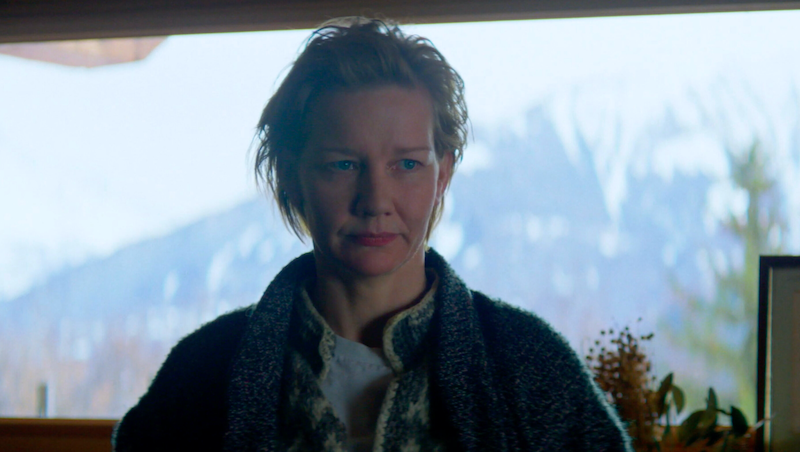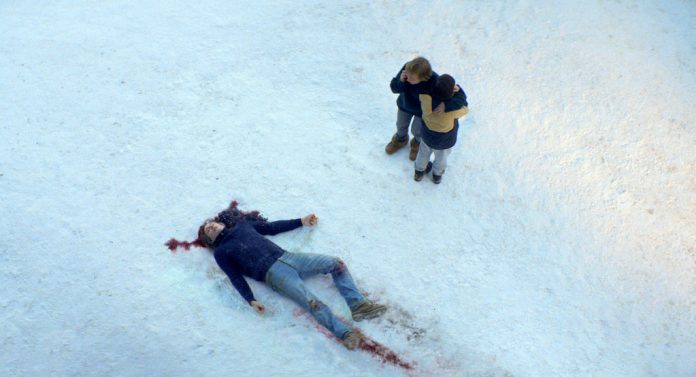I was initially sceptical about going to see Justine Triet’s latest film Anatomy of a Fall. The story seemed like it had been done before. A husband and wife share a complex relationship, one of them ends up dead and we are left to wonder if it was an accident or something sinister. There are innumerable films and TV shows that share this basic premise. Take, for instance, Jean-Xavier Lestrade’s famous documentary series The Staircase which follows a husband’s pursuit to clear his name in the wake of his wife’s suspicious fall to her death.
But, not even ten minutes into Triet’s film, it was clear she was offering something more than a simple whodunnit courtroom drama. This shouldn’t have come as a surprise, given the glittering success the 45-year-old French director and screenwriter has already enjoyed with works such as In Bed with Victoria (2017) and Sibyl (2019).
Anatomy of a Fall, which was nominated for two Academy Awards, marks a chilling shift from the upbeat style of these previous works. The film is centred on the relationship between Sandra (Sandra Hüller), a successful novelist, and her husband Samuel (Samuel Theis), an academic and aspiring writer. The secret fractures within their marriage are thrust into public view when Samuel falls from the attic window and dies. After a police investigation is unable to rule out foul play, Sandra is put on trial. At the centre of the film is the couple’s 11-year-old son Daniel (Milo Machado Graner), who must ultimately decide which of his parents to trust.
The opening scene is masterfully crafted, simmering the film’s overarching explorations into a compact, yet potent, ten-minute cinema spectacular. We see Sandra being interviewed by a young French literature student. The pair are seated comfortably together on Sandra’s lounge in front of a large window that overlooks the snow-capped mountains of the French alps, a breathtaking landscape that Triet returns to throughout the film.
On the surface, Sandra appears to be in total control of her own life, answering questions about her latest novel with confident light-heartedness.
But with her characteristic subtlety, Triet hints there is more to Sandra’s character than meets the eye. What may otherwise seem like insignificant words and gestures – Sandra’s slight frown at the mention of her husband, for example, or her swift deflection of a question about her personal life – are imbued with immense power.

So, when the scene cuts to a birds eye-view shot of Sandra stooped over Samuel’s body in the blood-stained snow, this change of mood does not feel jolting. Samuel’s dramatic death is built up in a way that feels natural.
What is clever about this opening, besides the subtle build-up to Samuel’s death, is the way it sets up the rest of the film. The interview scene foreshadows the kind of interrogation Sandra will endure when she is on trial. It also emphasises the impossibility of drawing any conclusion about a person’s life based on a single moment in time.
While Sandra does admit her relationship with Samuel was marked by anger, jealousy and even resentment, she doesn’t want her marriage to be seen exclusively in this way. As a particularly poignant scene later in the film shows of Sandra looking through old photographs, there was also much love and admiration in this relationship.
Yet, the criminal trial does not appreciate this complexity. The judge is only concerned about the moment of Samuel’s fall. Although these extended courtroom scenes occasionally weigh down the film’s thrilling pace, they also do a spectacular job of showing the deep-seated misogyny that continues to pervade criminal justice systems around the world.
Sandra’s character is ruthlessly torn to shreds by the prosecution. She seems on trial not for murder but for being an ambitious and intelligent woman who has put her work and creativity above the needs of her family.
But is Sandra guilty of killing her husband? The audience is left to ponder this question. Triet claims she cannot answer it herself. But, this tantalising uncertainty is one of the film’s masterstrokes. A person’s life, the film’s ending seems to declare, is not a specimen to be forensically dissected or placed into neatly labelled test tubes for our examination. A life is a sprawling and dizzyingly complex thing that onlookers, no matter how hard they try, can never truly understand.


